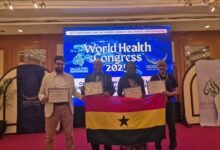THE GHANA PRODUCTIVE SAFETY NET PROJECT OFFERS A LIFELINE TO THE POOR
“The old order changeth yielding place to the new”, so says an old adage. The truism of this adage is made manifest as the Ghana Social Opportunities Project (GSOP) bowed out, albeit gallantly, giving way to the new Ghana Productive Safety Net Project (GPSNP) as its successor in pursuit of the nation’s commitment to strengthen social protection systems and improve the ability of poor people to be productive.
GSOP, which ended in June 2018, was an initiative meant to promote the creation of job opportunities for enhanced welfare of the people, particularly the poor. It was rolled out as a key support programme for District Assemblies country-wide.
And the objective? It was to provide technical and other support required for the rationalization of Ghana’s national social protection strategy to make it more cost-effective in reaching the poor while extending coverage to those who needed it. The additional credit helped to finance the costs associated with scaling up safety net programmes.
With GSOP coming to an end, a lacuna was obvious. To prevent a void and ensure continuity of the country’s social protection systems, the Ministry of Local Government and Rural Development (MLGRD) in collaboration with the Ministry of Gender, Children and Social Protection (MGCSP) and enjoying the support of the World Bank, in January 2018, initiated processes leading to the establishment of GPSNP with an additional assignment of strengthening and improving social safety nets and productive inclusion of the poor and vulnerable.
Its main goal, put in a more simple language, is to improve the ability of poor people to be productive, articulates Mr. Inusah Shirazu, Head of the Rural Development Unit of MLGRD who is also the Project Co-ordinator.
Surfing on the World Bank’s sponsorship of 60 million dollars, GPSNP is scheduled to last five (5) years starting from 2019 to 2024 and has been designed to benefit the poor in 80 selected districts across the country.
The beneficiary districts were selected on the basis of the 6th Ghana Living Standard Survey (GLSS6), 2014 compiled by the Ghana Statistical Service (GSS) which ranks all districts based on poverty incidence.
Strategically engineered to directly benefit the poorest households in all the regions, GPSNP is anchored on three main pillars: Productive Inclusion programme (P/I), Labour-Intensive Public Works (LIPW) and Livelihood Empowerment Against Poverty (LEAP) cash transfer programme.
About 25,000 individuals are to benefit from the Productive Inclusion slot, 30,000 through LIPW and 350,000 households under LEAP with the beneficiaries being selected from the poorest communities and households in the participating districts.
As already indicated, the project is expected to come to an end in 2024 but its co-ordinator, Mr. Shirazu sounding optimistic and over-enthusiastic states that “As a Ministry, our goal is to deliver even before the closing date”.
Similarly brimming with superlative optimism at the launch of a nation- wide sensitization workshop on GPSNP for the staff of Metropolitan, Municipal and District Assemblies (MMDAs), Mr. Augustine Collins Ntim, Deputy Minister of Local Government and Rural Development had no doubt that the project would contribute towards poverty reduction, job creation, climate resilience and enhance the socio-economic lives of the less-privileged in the rural communities in particular.
“The overall project will contribute towards the goal of Ghana’s ‘Co-ordinated Programme of Economic and Social Development Policies (2017-2024)’ and the ‘Agenda for Jobs: Creating Prosperity and Equal Opportunity for All (2018-2021)’. It will specifically boost the Planting for Export and Rural Development (PERD) programme under the supervision of the District Centre of Agriculture, Commerce and Technology (DCACT)”, he asserts.
Mr. Ntim who is in charge of Rural Development and Agriculture had a word of advice for District Chief Executives (DCEs), striking a clear chord that “As a government in a hurry, DCEs should ensure that project work plans and budgets are prepared and submitted to the Ministry two weeks after the orientation programme being organized for them and their staff to facilitate the implementation of this project”.
“Again, as a Ministry and under the watch of our able minister, Hajia Alima Mahama, we have assigned ourselves a tight schedule to complete all physical projects under this
BY FRANK OTCHERE





